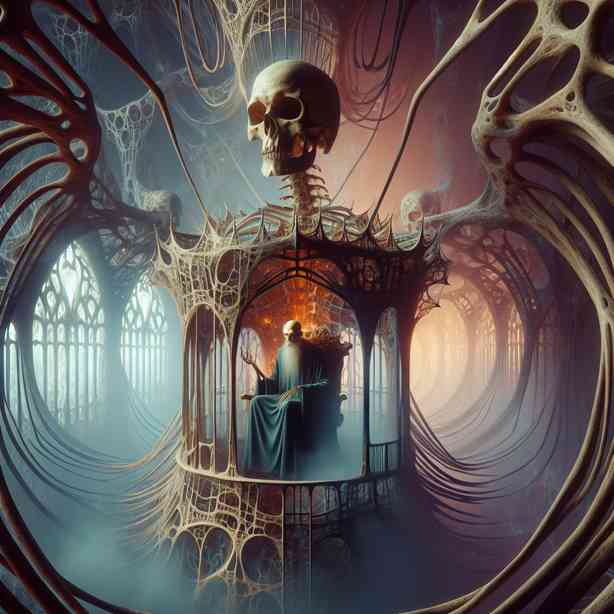
The Count That Lives in Your Bones explores the intricate relationship between ancestry, identity, and the historical narratives that shape our lives. Each of us carries within us a rich tapestry woven from the experiences, struggles, and triumphs of our ancestors. This profound connection to our lineage is not merely a matter of blood; it is a narrative that influences our thoughts, behaviors, and perceptions of the world.
To comprehend this concept fully, we must first delve into the basic idea of what it means to have ancestors. Our ancestors are those who came before us, whose lives have shaped our existence in ways that are often invisible yet deeply felt. They lived through hardships, made choices that reverberate through time, and their legacies are inherently entwined with ours. This leads to the understanding that who we are is a sum of countless stories, emotions, and moments that echo in our bones.
Every culture has its traditions and practices that honor the memory of ancestors. For instance, many Indigenous cultures around the world emphasize a deep connection to one’s lineage and the land. This connection is not just about history; it is about a sense of belonging, responsibility, and continuity. It fosters a respect for the past while encouraging individuals to contribute positively to their present and future. Exploring these traditions helps us appreciate the diverse ways in which people recognize and celebrate their roots.
Ancestral narratives also have a profound impact on identity formation. Cultural identity is often influenced by the stories passed down through generations. These tales can shape our values, beliefs, and behaviors. For example, a family that values education may have an ancestral story of perseverance against adversity, motivating current generations to prioritize learning and growth. Recognizing these narratives allows us to understand not just where we came from, but also the values and lessons that sought to guide our paths.
Moreover, the concept of ancestral memory suggests that our experiences and emotions are embedded within our genetic makeup. Some researchers propose that trauma, in particular, can be transmitted through generations. This transmission may explain certain predispositions towards anxiety, depression, or resilience seen in families across generations. The idea that the struggle of our ancestors can live on in us offers an intriguing perspective on mental health and well-being, highlighting the importance of breaking the cycle of trauma through understanding and healing.
As we engage with these ideas, it’s essential to consider how modern society influences our connection to genealogy. The rapid pace of life and the pressures of contemporary existence can sometimes make it easy to overlook our roots. However, recognizing the significance of our ancestry can provide a sense of stability and grounding in an ever-changing world. It serves as a reminder that we are part of a larger narrative, one that transcends individual experiences and unites us with those who came before us.
In addition, technology has opened up new avenues for exploring our ancestral connections. Online platforms provide resources for tracing genealogy, discovering family history, and connecting with distant relatives. DNA testing is becoming more accessible, allowing individuals to uncover heritage and even identify relatives they never knew existed. These modern tools add layers to our understanding of ancestry and identity, enabling a broader exploration that was once limited to traditional methods of record-keeping.
However, as we navigate these tools, it’s crucial to approach them with a critical eye. While technology offers valuable insights, it can also reduce complex human experiences to mere data points. The richness of a family story can’t solely be captured through statistics or genetic markers. Therefore, it is essential to complement technological findings with the stories and narratives that give these connections depth and meaning. This balance will help ensure we honor the full spectrum of our ancestry.
Additionally, our relationship with our ancestors can play a therapeutic role in our lives. Practices such as storytelling, writing, and reflection can help individuals processing grief, loss, or confusion. By sharing stories of ancestors who experienced similar struggles, people can find solace and strength. Knowing that one’s struggles are part of a larger human experience fosters a sense of community and connection, reminding us that we are never truly alone in our journeys.
Furthermore, acknowledging our ancestry encourages a sense of responsibility toward future generations. Just as we are influenced by the lives of those who came before us, we have the opportunity to shape the narratives of those who will follow. Our choices, values, and actions can create a legacy that resonates through time. This awareness can inspire individuals to live intentionally and purposefully, considering how their lives can positively impact their descendants.
In essence, The Count That Lives in Your Bones serves as a reminder that our identities are not isolated or individualistic; they are deeply interwoven with the fabric of our family histories. Embracing this interconnectedness can lead to profound self-discovery and a richer understanding of the human experience. By learning from the anecdotes and lessons of our ancestors, we honor their struggles and celebrate their triumphs, weaving our unique story into the ever-evolving tapestry of life.
In conclusion, exploring the count that lives in our bones is a transformative journey into our past, present, and future. It invites us to reflect on our roots, understand our influences, and take responsibility for our legacies. Embracing this awareness fosters a deeper connection to ourselves and our communities, enabling us to contribute meaningfully to the ongoing narrative of humanity. Each of us is a storyteller, holding the potential to share our experiences and shape the path for those who will follow. As we continue this journey of discovery, let us honor our ancestors and recognize the powerful legacy they leave within us.


